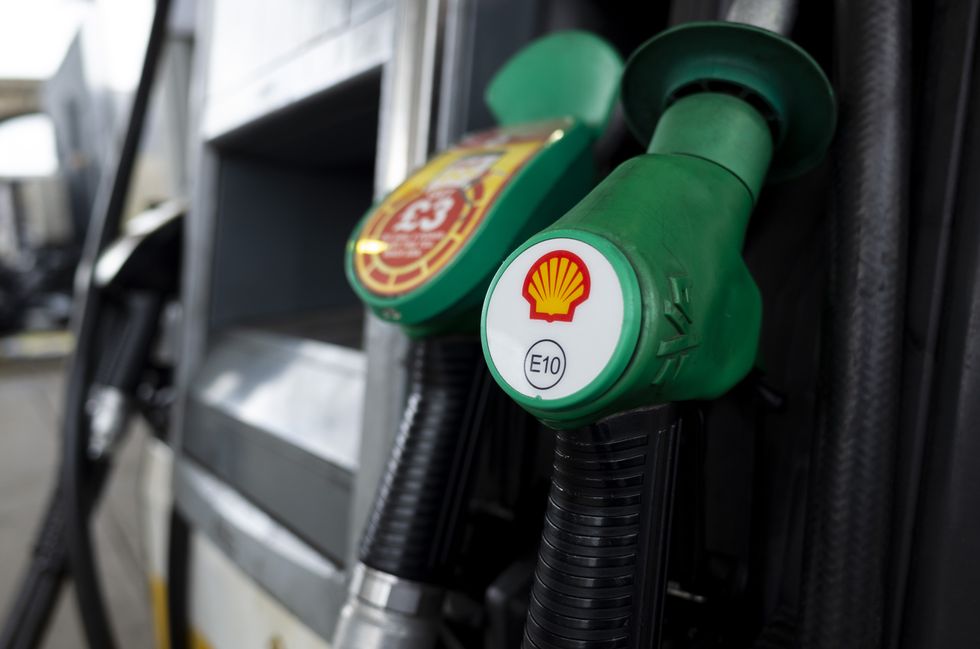Don't Miss
Most Read
Latest
E10 petrol has been praised by a new report for helping to slash emissions around the UK since its introduction in 2021.
The Renewable Transport Fuel Obligation (RTFO) Annual Report identified that the introduction of E10 petrol helped slash emissions in 2022.
E10 was first launched on English, Scottish and Welsh forecourts in September 2021, with the Government praising the fuel for its environmental qualities.
The standard grade of unleaded petrol is now E10 fuel. This means the 95 octane petrol is blended with between 5.5 percent and 10 per cent of renewable ethanol.
Do you have a story you'd like to share? Get in touch by emailingmotoring@gbnews.uk

E10 petrol has been on forecourts since September 2021
GETTYAt the time, the Government estimated that the rollout of E10 petrol could cut transport CO2 emissions by 750,000 tonnes every year.
This is the equivalent of taking 350,000 cars off the road, or all vehicles in North Yorkshire.
The RTFO report states that the switch from E5 to E10 enables "greater quantities of bioethanol to be used in transport", further supporting the cut in harmful emissions.
It will also help fuel suppliers meet environmental obligations, which will be increased over the years before the 2050 net zero deadline.
The report states: "Biodiesel (including Biodiesel ME and Off-road biodiesel) and bioethanol represented 45.3 per cent and 37.4 per cent of the total volume of renewable fuels, respectively.
"The increased proportion of bioethanol is likely to be driven by the introduction of E10 in late 2021, a biofuel made up of at least 90 per cent regular unleaded and up to 10 per cent ethanol.
"The introduction of E10 in late 2021 has led to a more pronounced growth in bioethanol use, resulting in a proportional decrease in biodiesel."
When E10 was first being rolled out, there were concerns from drivers that the lower petrol content would lead to an adverse effect of making their vehicles less powerful.
It was noted that the fuel would have a minor difference to the fuel economy of a car using it, although some motorists reported major issues with the efficiency of their vehicle when using the fuel.
Drivers in Northern Ireland saw the introduction of E10 petrol on forecourts in November 2022, while the Republic of Ireland embraced the fuel in February 2023.
With the rollout of E10 petrol and other biofuels being used in transport, it was estimated that 7.18 million tonnes of CO2 was saved in 2022.
This represented an 82 per cent saving of greenhouse gases from renewable fuels supplied under the RTFO compared to fossil fuels.
LATEST DEVELOPMENTS:
- Minibus crash on busy Yorkshire road sees 17 people injured and hours of delays after 'serious collision'
- Drivers warned as major car brands recall more than 800,000 vehicles over serious safety concerns
- Richard Hammond makes feelings clear on electric vehicles and predicts most cars will be petrol by 2050

E10 petrol has been praised for its environmental benefits
PAThe report stated that the renewable transport fuel obligation currently has a total value of £2.7billion, as of 2022.
The forecasts for 2023 could see a total worth of £2.42billion, noting a significant drop in value.
It is believed that this will be down to a drop in fuel price spreads - meaning the difference in price between a renewable fuel and a fossil fuel is lower.














